The Russian Joseph
Some authors, like Samuel Johnson, have impressed readers as much by their personalities as by their writings. In Russia, where poets enjoy the status of prophets and may choose among several striking roles, few keep their life and verse distinct. For Osip Mandelstam, often considered twentieth-century Russia’s greatest poet, life and verse proved inseparable.
The biographical aura surrounding Mandelstam derives in part from the myth he self-consciously chose. In her influential study, Clare Cavanagh focused on “the poetic life . . . not the actual biography of the historical Osip Mandelstam so much as the shape that biography takes as it is deformed and reformed to serve the needs of Osip Mandelstam the modernist artist.” At first, his Jewish origins conflicted with the mythic biography he constructed for himself, but later they became essential to it. Andrew Kahn’s new book, by contrast, argues that Mandelstam critics have paid too much attention to the Jewish theme.
Mandelstam achieved fame before the revolution as an Acmeist poet. Acmeists opposed the reigning school of Symbolists, who sought to go a realibus ad realiora (from the real to the more real) by finding the transcendent “correspondences” of things in this world. By contrast, Acmeists returned to Earth. As Sergei Gorodetsky explained, they waged “a battle for this world—for its sounds, its color, its forms, weight, and time—for our planet Earth. For the Acmeists the rose has again become beautiful for itself alone . . . and not for its supposed likeness to mystical love or anything else.”
In Mandelstam’s words, Acmeists “do not cravenly renounce their own gravity.” They detect in each stone a thirst to be built with, “as if it were asking to be let into the ‘groined arch’” of the Gothic cathedral. Mandelstam’s first collection of poems was therefore titled “Stone,” and three of his best lyrics, “The Admiralty,” “Notre Dame,” and “Hagia Sophia,” apostrophize great edifices. “Notre Dame” ends: “But the more attentively, O stronghold Notre Dame / I studied thy monstrous ribs, / The more often I thought: out of cruel weight / I, too, will someday create beauty.”
The Acmeists fared badly under the Bolsheviks. Nikolai Gumilyov was shot, while Anna Akhmatova and Mandelstam found themselves out of favor. “There’s nowhere one can run from the despot age,” Mandelstam wrote in one poem. Another distinguishes his true poetic self from the being residing in 1920s Russia: “No, never was I anyone’s contemporary— / Not for me such honor. / O how despicable that namesake of mine. / That wasn’t me, that was someone else.”
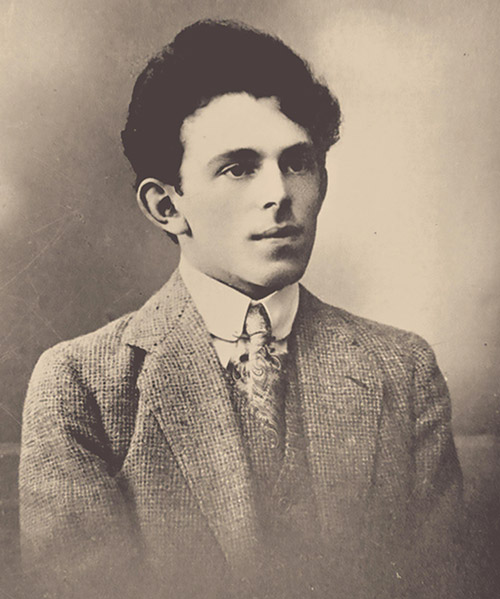
As Boswell crafted Johnson’s image, Mandelstam’s wife, Nadezhda, created a supremely memorable portrait of him. Her memoir, Hope Against Hope, is a masterpiece. In one moving passage, she recalled the moment, shortly after Osip’s arrest (he would never return), when she discovered her life’s purpose. She became aware of a duty, “the one for which I have lived ever since. There was nothing I could do to alter M.’s fate, but some of his manuscripts had survived and much more was preserved in my memory. Only I could save it all.” The NKVD (secret police) had already seized many of his manuscripts, so she relied on memory to preserve Mandel-stam’s poems. “There are many women like me,” she explains modestly, “who for years have spent sleepless nights repeating the words of their dead husbands over and over again.” Only decades later would the poems be published.
As Nadezhda describes him, Osip labored to embrace the revolution, but “it was easy to see in advance that he was doomed and would never find his place in the new world.” Mandelstam, in her view, belonged to a group “frightened of their own fears and . . . terrified of not seeing the wood for the trees.” He cajoled himself into being as “revolutionary” as possible. “If he had simply turned his back on reality,” she explained, “it would have been easier to live and adjust.” To prove he was no longer an old-fashioned Acmeist, he even criticized Akhmatova, not out of conviction but because he “was then ‘alone on every road’ [as he wrote in one poem], and could not stand it. . . . It is not so simple to go against everybody and against the times. . . . The power of ‘the general will’ is enormous—to resist it is much harder than people think.”
“Loneliness is not just the absence of friends,” Nadezhda wrote. “It is rather life in a society which heedlessly . . . follows its fratricidal path, dragging everybody with it.” Loneliness figures prominently in Mandelstam’s poems:
How I long to get caught up in the game,
Be lost in conversation . . .
To take someone by the hand, and say: “be kind—
I’m going the same way as you.”
In one of his poems using rhymed couplets with great skill, Mandelstam envisaged escaping with one intimate:
You and I will sit for a while in the kitchen
The kerosene smells sweet.A sharp knife, and a big round loaf of bread . . .
Pump the primus stove high if you like,Or else gather some string
to tie up the basket before dawn,So that we can leave for the station
where no one would ever find us.
For much of the 1920s, Mandelstam supported himself by translating foreign literature and writing critical essays. As the decade waned, he gave up composing verse until, at last, he rediscovered his poetic voice. Accepting his permanent opposition to the regime, he also reclaimed his Jewish heritage.
Mandelstam’s autobiographical essay “The Noise of Time” describes his early alienation from his Jewish roots. The boy depicted in his Hebrew primer repelled him, and he never learned the language. At home, he saw only “the chaos of Judaism—not a motherland, not a house, not a hearth, but precisely a chaos, the unknown womb world . . . which I feared, and . . . always fled.”
Mandelstam recalled his parents’ bookcase—“the bookcase of early childhood is a man’s companion for life”—and the significant arrangement of its contents. Jewish books, including a five-volume history of the Jews “written in the clumsy, shy language of a Russian-speaking Talmudist,” occupied the bottom shelf. Instead of standing upright, they “lay like ruins. . . . This was the Judaic chaos thrown into the dust.” The shelf immediately above contained his father’s German books—Schiller, Goethe, and Shakespeare in German translation—testifying to “my father fighting his way as an autodidact into the German world out of the Talmudic wilds.” His mother’s Russian volumes, including a splendid edition of Pushkin, occupied the top shelf. To this day, Mandelstam wrote, “I sense the everyday spiritual beauty, the almost physical charm of my mother’s Pushkin. It bore an inscription in reddish ink: ‘For her diligence as a pupil of the Third Form.’”
When, as a young man, Mandelstam resolved to abandon Jewish tradition, it was odd that he joined the Acmeists rather than the Futurists, who wanted to throw cultural treasures “from the ship of modernity.” The Acmeists, by contrast, cherished tradition. Mandelstam once described Acmeism as “a longing for world culture,” though he regarded himself as having no past, neither the Russian culture that excluded him nor the Jewish traditions he rejected. A rootless intellectual, he observed, “needs no memory—it is enough for him to tell the books he has read, and his biography is done.”
As Mandelstam realized, this sense of exile itself had Jewish origins. “Joseph, sold into Egypt,” one early lyric intones, “could not yearn more powerfully!” As Gregory Freidin observed, although it was an accident that Mandelstam’s parents named him Osip—the Russian form of Joseph—he chose to identify with the exiled dreamer and interpreter of dreams. Mandelstam’s second collection of poems, Tristia, contains what critics call his “Jewish poems,” but, as Cavanagh observed, this is “a Judaism that conforms to his own fears. . . . He shapes . . . a Jewish muse whom he must reject if he is to survive himself. . . . He has invented . . . a history that permits him to turn his back forever on his Jewish beginnings.”
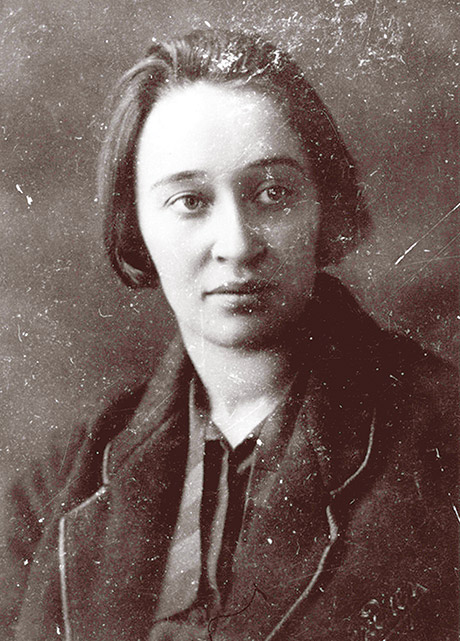
All the more surprising then was Mandelstam’s uncompromising assertion of Jewishness in his last years. It became essential to his identity as an estranged modernist poet. “When he started writing poetry again,” Nadezhda explained, his “was henceforth the voice of an outsider who knew he was alone and prized his isolation.”
“If one major aspect of modernist literature is to make the act of writing a ceremony of conspicuous estrangement,” Robert Alter has observed, “Kafka, Benjamin and Scholem, in at once incorporating and transcending the contradictions of their Jewish origins, became extreme and therefore exemplary instances of the modern writer.” That was true of Mandelstam as well. “In our most Christian world,” observed poet Marina Tsvetaeva, “poets are the Yids.”
“I insist that the writer’s profession as it has developed in Europe and, in particular in Russia, is incompatible with the honorable title of Jew, in which I take great pride,” Mandelstam asserted in his essay “Fourth Prose.” “I divide all of world literature into the authorized and unauthorized,” Mandelstam declared. “The former are all trash, the latter stolen air. I want to spit in the face of every writer who first obtains permission and then writes.” Soviet doctrine soon made it impossible for unauthorized writers to publish at all.
To avoid official demands, Mandelstam explained, the true poet must become a master of evasion, as Jews often are. When he came across his own (obviously Jewish) name in official documents, Mandelstam observed:
It takes on a completely objective ring, a rather new sound to my ear, and, I must say, an interesting one. I am often curious myself to find out what I have been doing wrong. What sort of bird is this Mandelstam, who, for so many years was supposed to have done such-and-such, but has always managed, the rogue, to evade it? . . . How much longer can I go on in this way?
Not long, as it turned out. What sealed his fate was an epigrammatic poem he wrote about Stalin. Referring to the Greatest Man in the World as a bloodthirsty mountaineer from the Caucasus and, as rumor had it, an Ossetian, the poem struck those who heard it as a suicide note. In my inadequate version, it reads:
We live not sensing the land,
Even near, people don’t understand.But when there is something to hear,
The topic’s the Great Mountaineer.He moves his fingers like sated worms,
Like leaden weights lets fall his words.His cockroach mustaches leer,
His boots shining fearfully clear.With pencil-necked half-men he plays,
Subordinates do what he says.They whinny or purr as he strokes;
He prates, prods, and pummels or pokes.The ukases that he enjoins
Fly like horseshoes at eyes, brows, and groins.And each execution’s a treat
For the broad-chested leader Ossete.
The NKVD had an earlier version, in which the second couplet reads:
We hear only the Leader who kills,
Peasant-slayer come down the hills.
Why did he write such a poem? Nadezhda explained:
The major factor was no doubt a feeling that he could no longer be silent. . . . By 1933 we had made great progress in our understanding of what was going on. Stalinism had shown its colors in . . . the mass deportation of the peasants. . . . M.’s poetry . . . showed . . . how much he had been affected by collectivization and the terrible sight of the hungry, wraith-like peasants he had recently seen.
Exiled in 1934 to the remote town of Voronezh, Mandelstam was at last arrested on May 2, 1938. Sentenced to hard labor, Mandelstam died at a transit camp.
Was the Stalin epigram an attempt to choose the reason for his death rather than leave it to the regime? Was he trying to fulfill the role of martyred poet? Nadezhda wondered:
The death of an artist is never a random event, but a last act of creation that seems to illuminate the whole of his life under a powerful ray of light. . . . Death, the moment of the end, should be a cardinal element—one to which all else is subordinate—in the structure of one’s life. There is nothing determinist about this—it is rather to be seen as an expression of free will.
Mandelstam had made this very point: “It seems to me that the death of an artist should not be excluded from the chain of his creative achievements but should be viewed as its final closing link.”
Although Mandelstam could select the reason for his arrest, he could not, of course, record his final moments. But others have imagined the end of his story. Varlam Shalamov—perhaps the greatest Soviet prose writer—devoted a story to Mandelstam’s last thoughts. “The poet was dying,” the story “Cherry Brandy” begins. Other prisoners lift his hand for the daily bread allotment and then eat it themselves. He scarcely notices since “the nausea of hunger had long since become a habit.” He knows he will soon die but rejoices that he has achieved literary immortality. Suddenly, for the first time, he understands the true “meaning of the word ‘inspiration.’ . . . Poetry was the life-giving force by which he had lived. . . . He had not lived for poetry; he had lived through poetry.” Shalamov represents Mandelstam giving beauty, and specifically poetry, the transcendent significance that materialist Soviet philosophy denied.
Still “composing real poetry,” Mandel-stam thinks it does not matter that nobody will ever read it. Like all true art, it exists timelessly. “And who cared if it was written down or not?” he reflects. “Recording and printing was the vanity of vanities. . . . The best was that which was not written down, which . . . melted without a trace, and only the creative labor that he sensed . . . proved that the poem had been realized, that beauty had been created.” Poetry and beauty are one thing, publication and canonization quite another. And like the dreams Joseph interprets, Osip’s poems are of divine origin.
In her recent imaginative reconstruction of Mandelstam’s death, Lebanese French novelist Vénus Khoury-Ghata borrows details from Shalamov’s story as well as from Osip’s essays, Nadezhda’s memoirs, and other sources. The dying poet she imagines endures nightmares in which Stalin pursues him. He recalls his poverty and how he once begged Maxim Gorky, the highest-ranking Soviet writer, for a shirt and trousers; Gorky gave him only the shirt (a true story).
“Lucky were those who left a body behind them,” Khoury-Ghata writes powerfully. “So many people disappeared. . . . ‘We rarely attended a burial,’” Nadezhda wrote. Interestingly, Khoury-Ghata reverses Shalamov’s point about poetry’s transcendent importance. Her Mandelstam thinks, “Poetry is superfluous when the stomach is empty and bodies are thrown into a common grave the way a baker puts his bread in the oven.”
Andrew Kahn’s new comprehensive study of Mandelstam offers what he calls a “revisionist” interpretation. I welcomed his critique of the “subtextual” (or “intertextual”) school I encountered in graduate school. All poets allude to predecessors, of course, but Russian poetry sometimes presumes an extraordinary ability to recognize countless quotations and allusions. Western readers, trained to regard poems as artifacts complete in themselves, may miss what is really going on. Mandelstam, who celebrated Dante’s “orgy of quotations,” was given to allusive verse, and critics have often labored to trace references to other Russian poems. Those poems allude in turn to still others, and so on. At some point, however, interpretive plausibility yields to mere cleverness.
Properly impatient with this approach, Kahn refers to those who “have tended to amass a set of references that are constantly reshuffled, reordered, and spliced, creating an endless regression of sometimes commonly used words supposed to have come to Mandelstam through a set of intervening texts sometimes at such a distance as to look spurious.” Like Cavanagh and Freidin, Kahn wisely proposes to read the poems in biographical, political, and various intellectual contexts as well.
Kahn objects, however, to their concern with Mandelstam’s Jewishness and self-image as a modernist outsider. On the contrary, Kahn’s Mandelstam exemplifies the consummate insider, and so Kahn presents “a consistent picture of Mandelstam’s energetic involvement with the practical workings of a literary field.” While Mandelstam is usually viewed as a traditionalist “facing backwards or away from reality,” Kahn regards this perspective as a “distortion.” His Mandelstam maintained a “sympathetic engagement with cultural revolution and its Socialist principles.” Even his critique of Stalin may be seen as a defense of socialism against its dictatorial distortion.
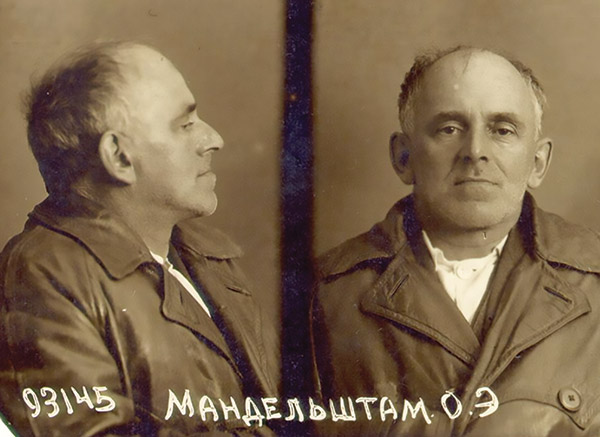
In short, Mandelstam’s “hopes for his country were more engaged than has been generally appreciated, his engagement with the social and cultural value of a great historical experiment more persistent.” As Kahn is doubtless aware, referring to Bolshevism as “a great historical experiment” has long been a way of apologizing for it—as if those millions of people who were shot, starved, and worked to death all participated in a noble social science experiment aimed at establishing a just world.
Kahn rejects Nadezhda’s portrait of Osip as someone whose “alienation from Soviet life began in 1918,” which he dismisses as a product of the Cold War (in literary critical jargon, simply naming a position as belonging to the “Cold War” allows one to dismiss it). And yet, as we have seen, Nadezhda did not describe Mandelstam as hostile to the regime from its beginning but rather as trying to accommodate himself to it as much as possible:
The decisive part in the subjugation of the intelligentsia [including Mandelstam] was played not by terror and bribery (though, God knows, there was enough of both), but by the word “Revolution,” which none of them could bear to give up. It is a word to which whole nations have succumbed, and its force was such that one wonders why our rulers still needed prisons and capital punishment.
It is a word that Kahn seems loathe to give up entirely even now.
To sustain his view of Mandelstam, Kahn not only takes at face value articles other scholars have regarded as piecework for hire and language which has previously been viewed as concessions to required official phraseology; he also attributes to Mandelstam the views of works he translated. Does Kahn think Mandelstam could have chosen to translate anti-Bolshevik works?
Some of Kahn’s readings are persuasive; others are plainly forced. One poem begins:
When the October time-server prepared for us
A yoke of coercion and malice,
And the armoured-car murderer bristled
And the low-browed machine-gunner——Crucify Kerensky!—demanded a soldier,
And the malevolent mob applauded
In Kahn’s reading, the “October time-server” is not, as prior critics have supposed, Lenin as leader of the October Revolution and enemy of Kerensky’s provisional government, but Kerensky himself.
If necessary, Kahn can always refer to other works in the same periodical:
Read on its own, the essay “Streams of Hackwork” looks like a piece of literary criticism on the state of translation. Seen as it was printed on the pages of Izvestiia, a national paper carrying multiple reports of industrial sabotage, the piece acquired a layer of political relevance, its language completely congruent with the critical attacks on mediocrity in manufacturing.
Is an author responsible for the works appearing alongside his? Were there publications advocating anti-Socialist views or “art for art’s sake” where Mandelstam might have placed his essay instead?
Hoping to make up for his poem insulting Stalin with another praising him, a desperate Mandelstam, to save his life, wrote an ode to Stalin. Agreeing with Nadezhda, critics have presumed that this ode was entirely insincere, but for Kahn, such readings have “been complicated by his popular and historical image as a martyr for artistic freedom.” While some “state as a matter of fact that he wrote the ‘Stalin Ode’ to save his life, this instrumental reading relies heavily on circumstantial evidence.” “Instrumental” is another adjective discrediting a position by simply naming it. In any case, if even Nadezhda’s testimony counts as mere “circumstantial evidence,” what wouldn’t?
Kahn often resorts to what Mikhail Bakhtin called “loophole” assertions. A statement suggesting a position is made in such a way that, if challenged, the speaker can say: I didn’t actually say that. Thus, Kahn writes:
Mandelstam’s prose makes ample use of the class-based and politically saturated language of this [Soviet] world. . . . Relevant writings also include some of his translation work. . . . Few readers and critics . . . have given any weight to the translations he made from contemporary socialist poetry and drama of German writers. It would be a liberty to claim the political views of these highly tendentious works as Mandelstam’s own; yet it would be equally misguided not to discuss their relevance to positions he adopts in propria persona and also the provenance of their publication in journals where Mandelstam freely published.
On the one hand, Kahn attributes these political views—not in their most tendentious form, perhaps—to Mandelstam. On the other, he can answer objections by pointing to the sentence stating that it would be a “liberty” to claim these views are Mandelstam’s. That sentence is constructed to contrast two opposed positions, but the opposite of claiming these translated views are Mandelstam’s own is claiming they are not Mandelstam’s, rather than refusing “to discuss” their relevance or the “provenance” of the journals in which they appear. With the alternative to Kahn’s view being a refusal even to discuss other possibilities, he makes his position appear the only reasonable one. But it would seem a lot more reasonable to assume the poet took a job to put bread on the table.
Kahn writes that he “does not subscribe to the view that Mandelstam was ambivalent about the revolution (which is different from observing the concerns about counter-revolution and dictatorship that punctuate his poetry).” The parenthetical qualification is loophole rich, partly because of its very vagueness. What “dictatorship” does Kahn have in mind? How can one be unambivalent about the revolution but concerned about “dictatorship” when Lenin described dictatorship as the revolutionary regime’s essential principle? “Whoever does not understand the need for dictatorship of any revolutionary class to secure its victory, understands nothing of the history of revolution,” Lenin proclaimed. He went on to explain that “the dictatorship [of the proletariat] means nothing other than power totally unlimited by any laws, absolutely unrestrained by regulations and based directly on the use of force.” By “counter-revolution,” Kahn seems to mean Stalinism, but he avoids saying so.
So conscientious a scholar is Kahn, and so informative are some of his readings that his evasive rhetoric seems to be almost unconscious. It is as if he wants to maintain an untenable position without denying that there is counterevidence. And so he asserts with loopholes. Nadezhda refers to those who wound up affirming what they hoped while knowing contrary facts, and so it is interesting that Kahn seems caught up in a similar dubious doubling.
The reader who, perhaps having read Shalamov’s brilliant story and Vénus Khoury-Ghata’s moving little volume, would like to understand Mandelstam better, should turn (or return) to Nadezhda’s luminous, engrossing memoir and then to Mandelstam’s prose, which convey how this dreamer and interpreter of dreams thought, before attempting his poetry. A Russian Joseph trying to honor his namesake, Mandelstam lived and died for poetry and through poetry. In so doing, he came to identify his poetic independence with the “honorable calling” of being a Jew.
Suggested Reading
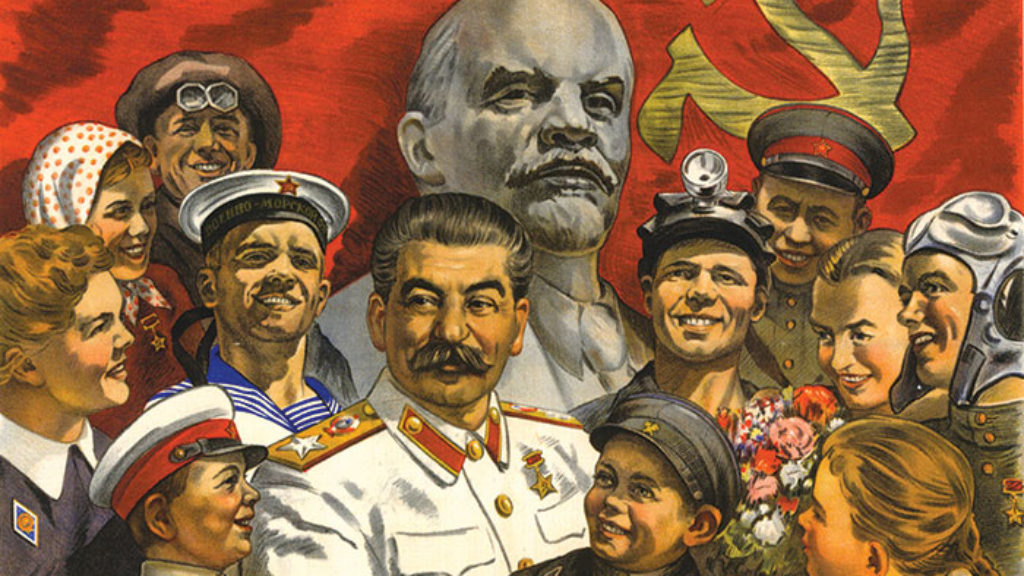
Jews, Revolutionism, and Doublethink
Even in the Gulag, it was difficult to give up the belief in the Revolution. Take Evgenia Ginzburg, for example . . .

From Russia with Complications
In what ways is the Israel of the Russian aliyah an extension of the old and new Russia, and to the degree that it is, does this constitute a problem? A valuable report on the present state of affairs.
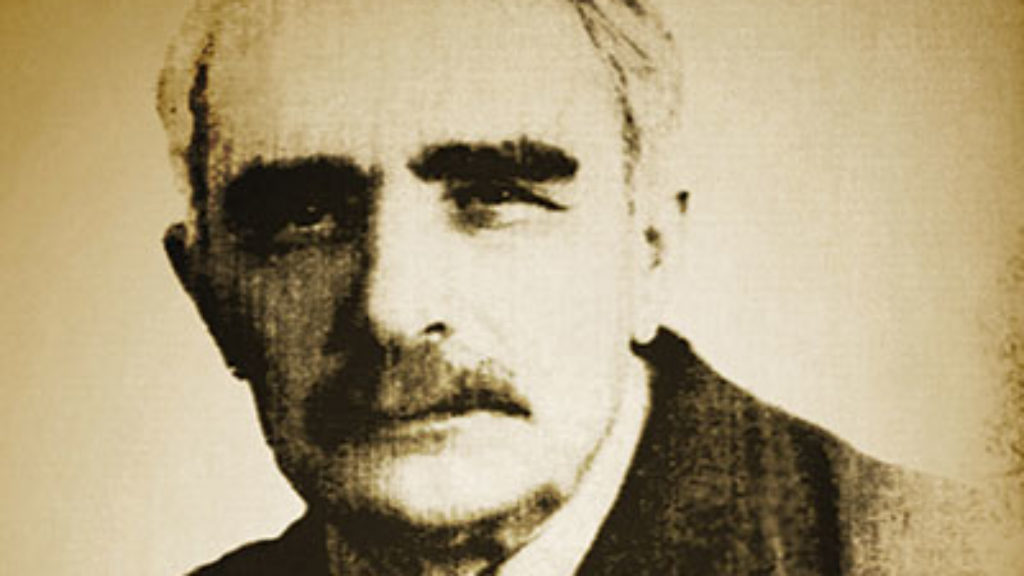
Poisoned Gefilte Fish, Broken Heart
In a characteristic turn of phrase, Der Nister wrote that the realization of the possibility of a land for Jews, where they lived under their own sovereignty would be a “brokhe af doyres” (blessing for future generations). The bitter irony is almost unbearable.
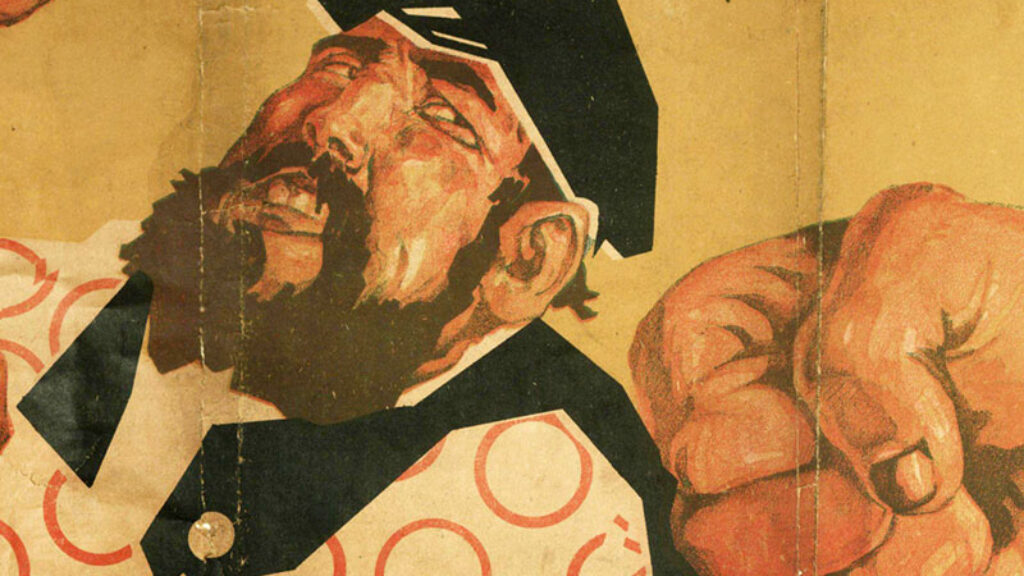
Bread and Vodka
Mendel Osherowitch's 1933 book about life in Ukraine not only bore rare eyewitness testimony to one of the worst atrocities in a barbarous century; it did so from the vantage point of a brother of two of the perpetrators.
Comments
You must log in to comment Log In